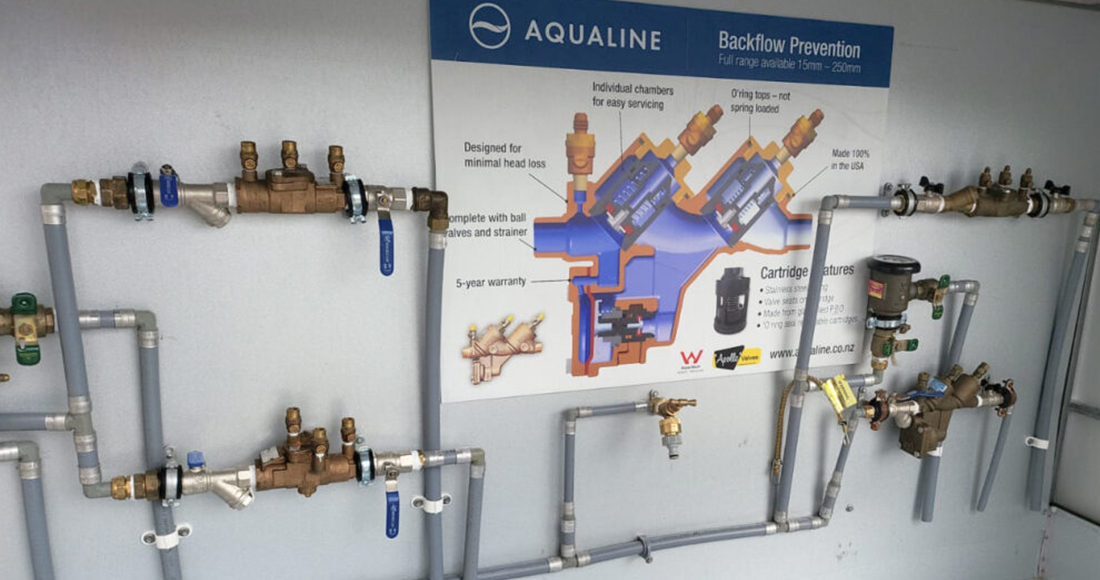
Understanding the role of backflow preventers
Backflow preventers are critical components in any plumbing system, as they protect potable water supplies from contamination by preventing the undesirable reversal of water flow. They are particularly important in commercial and industrial settings, where hazardous substances may be present, such as chemicals or sewage. To ensure that backflow preventers continue to function effectively and protect public health, regular maintenance and care are essential. In this blog post, we will provide tips for keeping your backflow preventer working properly, covering installation, routine maintenance, addressing issues, and the importance of engaging a certified plumber for these tasks.
Proper installation and setup
The first step in ensuring the long-term effectiveness of your backflow preventer is to have it properly installed and set up by a certified plumber. This will ensure that the device is positioned correctly within your plumbing system, with the appropriate type of backflow preventer selected based on the potential hazards and requirements of your property. A certified plumber will also ensure that the installation complies with local regulations and standards, safeguarding against potential legal ramifications.
Regular maintenance and inspections
Routine maintenance and inspections are crucial for keeping your backflow preventer working properly. By scheduling regular checks, you can identify and address potential issues before they escalate, helping to prevent costly repairs or water supply contamination. As a general guideline, backflow preventers should be inspected at least once a year, with more frequent inspections recommended for high-risk environments. During these inspections, a certified plumber will examine the device for signs of wear, damage, or corrosion, and perform any necessary maintenance tasks, such as cleaning or replacing worn components.
Property owners should also conduct periodic visual checks of their backflow preventer. Look for any signs of leaks, rust, or damage, and report any concerns to your plumber promptly.
Addressing issues and repairs
If you encounter any issues with your backflow preventer, it is important to address them as soon as possible to prevent further damage or contamination of your water supply. Engage a certified plumber to diagnose and repair the problem, as attempting to fix the issue yourself may result in further damage or non-compliance with local regulations. A certified plumber will have the necessary knowledge, skills, and tools to effectively address the issue and restore the functionality of your backflow preventer.
Protecting your backflow preventer from freezing
In colder climates, freezing temperatures can pose a significant risk to backflow preventers, as frozen water inside the device can cause damage, rendering it ineffective. To protect your backflow preventer from freezing, consider the following tips:
Insulate the Device
Cover your backflow preventer with insulation material, such as foam pipe insulation or an insulation blanket, to help retain heat and protect it from freezing temperatures.
Install a protective enclosure
A protective enclosure can shield your backflow preventer from the elements, helping to maintain a stable temperature and prevent freezing.
Drain the device
If freezing temperatures are imminent, and your backflow preventer is not in use, consider draining it to remove any water that could freeze and cause damage.
Regularly check the device during cold weather
Monitor your backflow preventer during periods of freezing temperatures, and address any issues promptly to prevent damage.
Engaging a certified plumber for backflow preventer care
As backflow prevention is a critical aspect of public health and safety, it is essential to engage a certified plumber for all backflow prevention-related tasks, including installation, maintenance, and repairs. In New Zealand, plumbers must hold a backflow prevention qualification and be registered with the Plumbers, Gasfitters and Drainlayers Board (PGDB) to legally carry out work on backflow preventers. By choosing a certified plumber, you can have peace of mind that your backflow preventer is being cared for by a knowledgeable and experienced professional, ensuring its long-term effectiveness and compliance with local regulations.
When selecting a plumber for your backflow preventer care, consider the following factors:
Certification
Verify that the plumber holds a valid backflow prevention qualification and is registered with the PGDB.
Experience
Opt for a plumber with experience in backflow preventer installation, maintenance, and repair, as this demonstrates their familiarity with the different types of devices and the potential challenges associated with each.
Reputation
Seek recommendations from friends, colleagues, or online reviews to find a plumber with a proven track record of delivering reliable and professional service.
Communication
Choose a plumber who communicates clearly and effectively, providing transparent information about their services, the condition of your backflow preventer, and any necessary follow-up actions.
Availability
Select a plumber who can accommodate your schedule and provide prompt service, as timely maintenance and repairs are crucial for maintaining the integrity of your backflow preventer.
Backflow preventers play a vital role in protecting public health by preventing the contamination of clean water supplies. Ensuring their proper functioning requires regular care and maintenance, including professional installation, routine inspections, addressing issues promptly, and protecting the device from freezing temperatures. By following these tips and working with a certified plumber, you can help ensure the long-term effectiveness of your backflow preventer and safeguard the quality of your water supply.
As a property owner in New Zealand, staying informed about backflow prevention and the associated care requirements is crucial. By taking a proactive approach to backflow preventer maintenance and working with a qualified plumber, you can contribute to the preservation of clean and safe water supplies for all.
